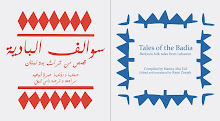From a recent report by the Arab Authority for Agricultural Investment and Development Annual Report (2007). (Thanks Rania)
The Arab region is endowed by agricultural resources; such as land, water,
a variety of agricultural environments, and farm labor; which provide a
base for a vast agricultural development that would be capable of meeting
the food needs in the Arab region. These resources are as follows:
The total area of arable land in the Arab region was estimated as 198
million hectares, whereas the area under agricultural production was
estimated as 71 million hectares, representing only 36% of the total
arable land. This indicates the availability of agricultural areas which
can be utilized.
Water resources in the Arab region were comprised of surface water
and underground water. The quantity of surface water was estimated as
about 296 billion cubic meters. Underground water reserve was
estimated as 7,734 billion cubic meters. The annual average quantity of
water resources, from surface and underground resources, used in
agriculture was estimated as 203 billion cubic meters. This indicates the
existence of unutilized quantity of water, in addition to the possibility of
applying modern irrigation systems to raise the efficiency of irrigation
and conservation of water resources.
The Arab region is endowed by a diverse mix of climates, the thing
which allows the cultivation of different grain, vegetable, fruit, forage,
sugar and edible oil crops all around the year, as well as animal, poultry
and fish production.
The agricultural labor force in the Arab region was estimated as about
33 million in the year 2005, representing about 28% of the total labor
force which was estimated as 118 million. This means that developing
the agricultural sector is vital for enhancing the standard of living,
alleviating poverty, and decreasing migration from rural areas to cities.
The total gross domestic product (GDP) of the Arab region was about $79
billion in the year 2006, with an increase of 13% over the year 2005.
However, it represented only 6% of the total GDP in the Arab region, the
thing which indicated the possibility of increasing the percentage
contribution of the agricultural product in the total GDP in the Arab
region.
The total amount of imports of the main food products into Arab countries
was estimated as $ 23 billion in 2005. The amount of the food gap in the
main food commodities in the year 2005 was estimated as $18 billion, in
which cereals and floor represent 51%, compared to $16.8 billion in the
year 2004.
Agricultural investments in the Arab region have remained very low and
not exceeding 5% of the total amount of investments, compared to
investments in the other sectors in the region.
The information on the agricultural sector shows that it possesses ample
agricultural resources which are – if efficiently utilized – capable of
meeting the food needs of the Arab region.
The experience of AAAID throughout its past years of operation
indicates that the development of the agricultural sector requires
mobilization of large financial resources to enable farmers and investors
apply modern agricultural technologies to contribute in raising
productivity in the sector and enhancing its competitive advantage in
local markets as well as export markets.
The mobilization of financial resources, whether from private investors
or from financial institutions, requires prompt efforts to provide an
attractive investment environment.
In the top priority of that comes the construction of roads to link
agricultural areas with consumption areas and export markets.
There is also a pressing need for boosting up the economic restructuring
movement through following up the execution of the legislations for
abolishing the fees and taxes on agricultural inputs and means of
production.
Revising the import agency system in the area of agricultural imports.
Revising the agricultural land rental system as rents constitute
additional costs to agricultural products and lessen their competitive
advantages.
Adoption of financial and monetary policies to facilitate the flow of
financial resources to farmers and investors.
Supporting research activities and agricultural experiments for the
introduction of new farming technologies and adapting them to the
conditions and needs of the agricultural sector.
Allocating special financial amounts to support research in
biotechnology and genetic engineering in order to provide a foundation
for an Arab industry in agriculture.
References:
- The Arab Unified Economic Report 2007.
- Arab Agricultural Statistics Yearbook, Arab Organization for Agricultural Development, 2007.
- FAO Website, 2008.
- AAAID Experts Reports.















+081.jpg)


